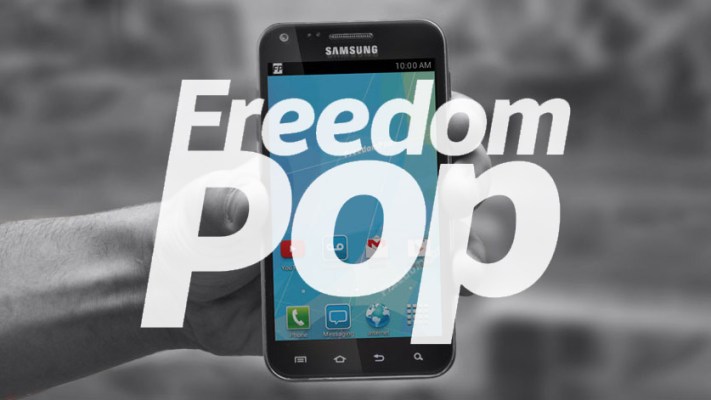FreedomPop — the U.S. startup disrupting the carrier world with free mobile and broadband services, and now apparently catching the attention of carriers that want to buy it — has added two more international features to its product that puts it up against the likes of Skype in the world of low-cost calls. It will now let users of its phone service, as well as any mobile user who has downloaded the latest FreedomPop Android or iOS app, make free international phone calls; and it will also let people buy local numbers in other countries.
The new international services come at the same time that FreedomPop is being courted by other carriers. USA Today is reporting that Sprint is one of them, although CEO Stephen Stokols tells TechCrunch that this is flat out untrue, and just a rumor. But the guessing will continue: before today, he had confirmed that FreedomPop had been approached by two carriers as an acquisition target for nine-figure prices. Stokols today confirmed while Sprint is incorrect, this is true.
One suitor, he said, is a tier-one mobile carrier (Sprint, in USA Today’s report) and the other is a smaller, publicly-traded operator. (We are still digging on this.)
FreedomPop — based in Los Angeles and backed by Europe’s Mangrove Capital Partners (Skype’s first backer), DCM Capital, and Niklas Zennstrom’s Atomico (more Skype irony) — has said that it is holding out for a billion-dollar valuation and a possible IPO within the next 18-24 months.
It’s also keen to keep growing its own business: aligning with a carrier like Sprint, to become an add-on feature to catch more dogged, cost-conscious demographics, could see the FreedomPop have far less autonomy than it has today. A deal with a smaller carrier, however, could see FreedomPop retain more clout and influence in its future direction.
FreedomPop’s business model follows the larger trend to freemium services that have driven a lot of cloud-based businesses like Dropbox, Box, Evernote, as well as more consumer focused content such as games and music streaming.
In FreedomPop’s case, the idea is to win users over with a decent amount of free airtime and then monetise them with extra services and more airtime if they need it, either on their own devices or through a range of handsets offered by FreedomPop.
This will be the case with the international calls, too. The free call package will cover 100 minutes to 30 countries starting today including Mexico, the UK, Canada, China, Hong Kong, Brazil and India. In coming weeks the number will expand to 100, the company says. (It offered no international calling options before today to its U.S. users.)
Those who want more minutes can get packages starting at $4.99 — a fee that FreedomPop says undercuts carriers and companies like Skype by more then 75%.
And $4.99/month will also be the price for its international local-number service. Aimed at people and businesses who make and receive calls regularly in a country where they are not located, it gives them the ability to turn those long-distance calls into locally-charged ones. It competes against the like of Skype Number.
FreedomPop’s freemium approach seems to be working. Its revenues are expected to more than double in this year — going from $9 million in 2013 to “tens of millions” in 2014. This is on a base of hundreds of thousands of subscribers with the projection being that it will hit 1 million sometime next year (2015).
Part of the way that FreedomPop will reach that number is by way of international growth. The company earlier this year announced its first international carrier partner — KPN subsidiary in Belgium, BASE — for a SIM-only free service, no handsets.
That should have been going live by the end of this year but it looks like it’s been pushed back a bit.
“We are looking to be live in our first European market end of Q1/early Q2,” CEO Stephen Stokols says. “From there we will roll out five to six additional markets by the end of the year.” He says the company is “talking to all the major international carriers including T-Mobile, Telefonica, France Telecom, 3, KPN and Vodafone,” and that “actual formal partnerships have been formalized contractually with a subset of those already, with others set to be finalized by year-end, at which point we should have access to mobile networks spanning 12-15 markets.”
Updated with more comments from CEO on subject of acquisition rumors.
